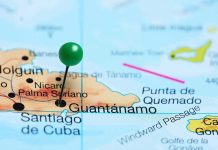
Senator Eric Schmitt proposes making Easter Monday a federal holiday, reigniting discussions of a federal holiday that aims to give families more time to celebrate Christianity’s most important holiday.
Key Takeaways
- Missouri Senator Eric Schmitt is introducing legislation to make Easter Monday a federal holiday, citing that 81% of Americans celebrate Easter.
- Easter Monday is already recognized as a public holiday in many Western nations including Canada, Australia, and most of Western Europe.
- The proposal aims to create a three-day weekend that could boost economic activity by 10-15%, potentially adding up to $2 billion to the economy.
- Schmitt argues the holiday would be “Pro-worker, Pro-family, Pro-faith” and would allow families more time to celebrate together.
- Making Easter Monday a holiday could provide Americans with an opportunity for deeper spiritual renewal and reflection.
A New Federal Holiday Proposal
Missouri Senator Eric Schmitt is leading an effort to establish Easter Monday as a federal holiday in the United States, a move that would align American observance with many other Western nations. The Republican senator’s proposed legislation seeks to create a three-day weekend around Easter, addressing what he sees as a gap in the current federal holiday schedule. The bill comes at a time when many Americans struggle to fully celebrate Easter, which Schmitt describes as “the holiest day in Christianity,” due to work and school obligations the following day.
Easter is the holiest day in Christianity. It should be a federal holiday.
I'm introducing legislation to make it one.
Here's why. 🧵 pic.twitter.com/ByjGcY3LtP
— Eric Schmitt (@Eric_Schmitt) April 14, 2025
Historical Context and Cultural Significance
Easter Monday holds historical significance in American educational traditions. Many American schools once gave students time off for both Good Friday and Easter Monday, creating a four-day weekend that allowed families to gather and observe religious traditions without rushing back to work and school. The senator noted that Easter is celebrated by approximately 81% of Americans, making it far from a “micro-holiday” and worthy of federal recognition. Unlike fixed date holidays, Easter’s floating schedule—occurring anywhere between March 22 and April 25—makes planning difficult without a dedicated Monday holiday.
Economic and Social Benefits
The proposed Easter Monday holiday offers potential economic benefits alongside its cultural and religious significance. According to Schmitt, making Easter a three-day weekend could boost economic activity by 10% to 15%, potentially adding up to $2 billion to the economy. This economic stimulus would come from increased travel, dining, and retail shopping as families take advantage of the extended weekend. The senator frames the proposal as being beneficial across multiple dimensions, describing it as “Pro-worker. Pro-family. Pro-faith.”
A Time for Spiritual Renewal
Beyond the economic and family-oriented benefits, an Easter Monday holiday presents an opportunity for deeper spiritual reflection and renewal. While Easter Sunday celebrations often focus on family gatherings and traditional meals, Monday could provide time for more contemplative activities such as attending additional church services, participating in Bible study, or simply engaging in quiet personal reflection. This additional day would allow Americans to more fully engage with the core message of Easter—rebirth, hope, and faith—without the immediate pressure to return to work and school responsibilities.
Schmitt compares the proposed holiday to the existing National Day of Prayer, suggesting that Easter Monday would represent federal recognition of a tradition central to Western civilization. The non-partisan nature of the proposal could appeal to Americans across the political spectrum who value the opportunity to more fully celebrate a significant religious holiday. If passed, the legislation would designate Easter Monday as a legal public holiday, joining eleven other federal holidays currently recognized in the United States.









